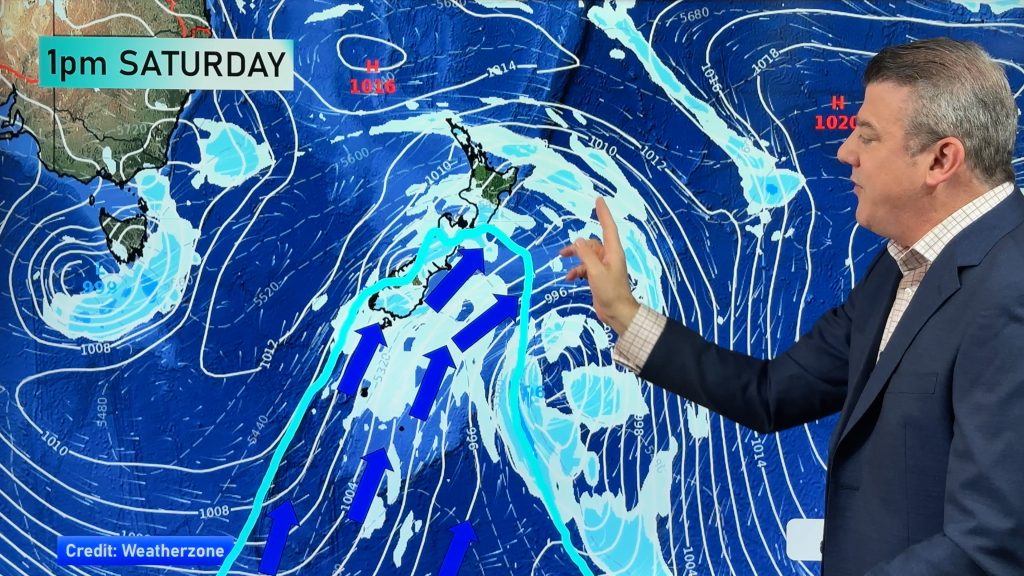
> From the WeatherWatch archives
Much of the United States was braced for severe winter weather last night, as a major storm hit California while an unrelated first round of wintry conditions snarled commutes in the Midwest.
The storm hitting California was expected to affect weather across the country through Thursday NZT.
The wintry weather, caused by a weak disturbance over the Midwest, caused the deaths of three people in weather-related traffic accidents Sunday and Monday. The first two occurred Monday NZT in northern California, the area first hit by the weather.
A 14-year-old boy died on Interstate 80 about 11 a.m. Monday NZT when the truck he was traveling in skidded off the road on a steep snow-covered grade, said California Highway Patrol spokeswoman Jeanie Hoatson. A second person was killed on State Route 89 about 45 minutes later when the vehicle they were driving went out of control and collided with a second vehicle, she said.
In Indiana yesterday, a 21-year-old man died on Interstate 65, northwest of Indianapolis, state police said. The man was involved in one of two weather-related crashes on the road as snow fell, and was struck by a semitrailer truck when he stepped out of his car, Indiana State Police said.
Numerous traffic accidents were reported in states experiencing winter weather conditions as the disturbance moved across and into the Midwest, affecting Ohio and Wisconsin.
Forecasters warned that the approaching storm could cause widespread power outages through Thursday NZT and make travel nearly impossible in some areas. It may spread arctic air southward by midweek.
Chicago, Illinois, received about an inch of snow yesterday morning (NZT), said CNN iReporter Alan Hawkins. The sun came out and began to melt the snow, but by late morning the sky was overcast again.
More cold temperatures and snow are forecast for Tuesday and Wednesday (US time), he said. “Today’s just kind of a taste of what we’re going to get.”
CNN iReporters in Kentucky and Indiana reported snow, but said it was melting as of late morning.
Some snow also fell in mountainous areas of Arizona early yesterday NZT as the major storm moved in. Winter storm warnings stretched as far south as Tucson.
Blizzard warnings are in effect for parts of the central Rockies and the Mogollon Rim in Arizona, where up to 2 feet of snow and wind gusts of 50 mph could cause whiteouts, forecasters said.
Wind chills of 30 to 40 degrees below zero are forecast for the Midwest and the northern Plains, and afternoon temperatures may be in the single digits through Thursday NZT. The storm is forecast to intensify today as it strikes California and heads northeast toward the Rockies, forecasters said Sunday.
Winter storm warnings are in effect for the Sierra Range southward to the San Bernardino mountains in Southern California. The area was set to experience heavy snow on Monday (US time), with up to 3 feet possible in the higher elevations.
Southern California may get wind gusts of 100km/h, which could damage trees, power lines and communication towers. Heavy rains were also forecast, triggering possibilities of mudslides and debris flows especially in burn areas.
The storm is expected to intensify today NZT as it moves northeast into the Midwest and upper Great Lakes.
Winter storm watches are in effect for the regions, with blizzard conditions possible in northern Iowa and southern Minnesota.
Tomorrow NZT, the storm will move into southern Canada as the coldest air of the season spills across the central United States, forecasters said.
Many temperatures will be below zero (F) Thursday morning and daytime highs will struggle to make it out of the single digits across the upper Great Lakes, according to forecasters.
– CNN.COM
Comments
Before you add a new comment, take note this story was published on 8 Dec 2009.






Add new comment